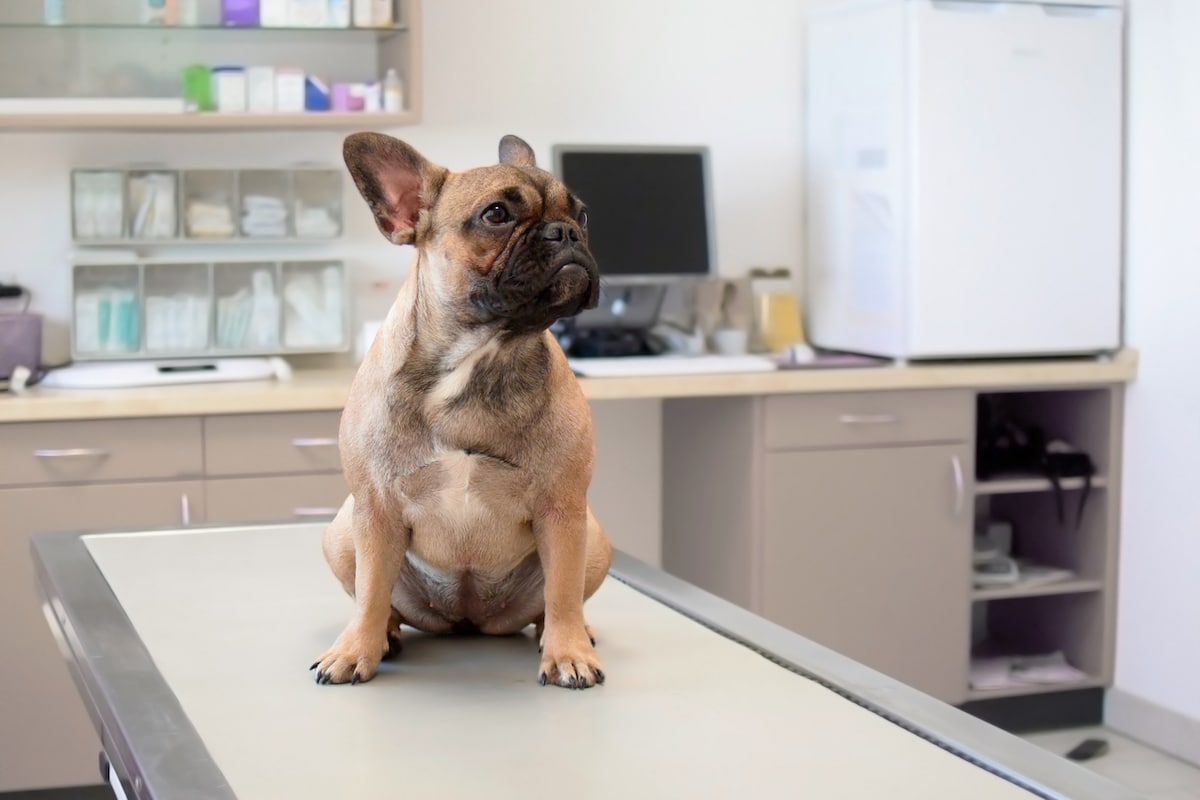Dogs are known as man’s best friend, and when you adopted your rescue dog this is probably the sort of relationship that you were hoping for. Sadly, things don’t always work out. While rescue centers do their best to match owners with suitable dogs, unforeseen issues can arise.
This could leave you wondering whether you should return the rescue dog, which could give you feelings of guilt and sadness.
In this article, we will explore the practical steps you should take when considering returning your rescue dog, as well as managing the emotional side of things. Hopefully, this will help you to see that there is usually nothing to feel guilty about during this difficult time.

Is It Wrong To Return Your Rescue Dog Back To The Shelter?
Let’s start with the most asked question on this topic – is it wrong to return your rescue dog?
When you took on your new pet, you did so with good intentions. Rescue dogs have had variable starts in life, and all new owners want to provide their chosen pet with stability and a ‘fur-ever’ home. So, it is completely understandable to feel worried when things are not working out as you had imagined.
The short answer is no, it is not wrong. There are any number of things that can cause a breakdown in dog ownership including, but not limited to, the following:
- The dog has challenging behavioral issues
- The dog does not get on with the owner’s existing pets
- The dog develops health problems that the owner struggles to manage
- The owner’s financial circumstances have changed
- The owner’s routine has changed – for example, longer or different work hours or an increase in other caring commitments (new baby, elderly parents, etc)
- The owner has developed allergies to their dog
- The owner has developed a health complaint, either mental or physical, which prevents them from meeting their dog’s needs
Before you take your dog back to the rescue center it’s important to make sure you have first explored all of the available options to improve the situation. We’ll look at that next.
Can You Prevent The Need To Return Your Rescue Dog?
Firstly, it is recognized that some dogs are difficult by nature and will take longer to adjust to their new homes than others. There is no quick answer to this but we can explore a few practical measures you can take.
1.) Manage your expectations
Of course, taking on a new dog is exciting, but you should also be realistic. Most rescue dogs take time and patience to unleash their true potential. Inexperienced dog owners in particular may struggle with this, so it is important to remember to take one day at a time and seek support with any training or behavioral issues.
2.) Allow the dog to adjust to their new home
Some rescue dogs have been through a lot before arriving at your home. They may have had several homes before yours, spent time on the streets, or lived in a kennel environment for an extended period at the rescue center.
They will take time to adjust to their new family and home.
Read: The 3-3-3 Rule For Rescue Dogs
This may mean your rescue dog is timid or wary, to begin with, or they could show problem behaviors like vocalizing and inappropriate toileting. Once the dog becomes familiar with your routines and expectations some of these problems may self-resolve.
3.) Talk to your vet

It is always worth getting your rescue dog checked over by a vet if you are having issues with their behavior. This allows medical complaints or underlying pain to be identified, which could be contributing to your dog’s problems.
For example, a dog with a urinary tract infection may have accidents in the house, or a dog that hates having his head and ears touched could have an underlying infection. If no medical issues can be identified, then your vet is also best placed to recommend further support.
4.) Seek support with training and behavior
Once medical issues have been ruled out you can then look for help with training and behavior. A qualified canine behaviorist is recommended when dealing with issues like separation anxiety or reactivity to other pets/noises/people.
A dog trainer or training classes tend to be more helpful for general obedience issues, helping with things like recall and walking to heel.
5.) Ensure you are meeting your dog’s needs
Some owners may not be providing their dogs with enough exercise or mental stimulation, particularly in young, active, working breeds. A tired dog tends to be a happy dog! Consider changing up your routine so that you can spend more time playing with your pet or taking them out for an extra walk.
Alternatively, see if you can get family members or neighbors to help out or employ the services of a dog walker. To make things interesting why not consider agility, flyball, or obedience classes to keep your pet busy? Using interactive toys at home can also help such as puzzle feeders, snuffle mats and chew toys.
6.) Speak to other dog owners
Reaching out to other dog owners can be useful to some people. It can be all too easy to fall into the trap of thinking that you are the only one struggling. Speaking to other people while out walking or on social media groups will soon help you to realize that there is generally no such thing as the perfect dog!
Most pets will have some bad habits or issues that their owners are still working on.
7.) Discuss problems with the rescue center
If you have taken all of the sensible steps above, then why not reach out to the rescue center for a chat?
They will have seen this situation before and could have some other suggestions for you. They will want to make things work, just as you do, so don’t be frightened to tell them that you are struggling.
Returning a dog to the shelter is a big decision and they will help you through this.
General Rules For Returning A Rescue Dog
Returning your rescue dog is usually the last resort, after following all of the other steps in our previous section. However, some issues are less fixable than others, particularly if your life circumstances have changed.
Some dog rescues put a clause in their contract that allows you to return the dog if things don’t work out, so it’s worth having a read of that.
Ultimately, the majority would far rather the dog be returned than the risk of it being put in a worse living condition because an owner cannot cope. Rescue centers have the animal’s best interests at heart, so have a chat with them and see what they suggest.
If the shelter agrees to take your dog back then they may request a copy of your pet’s medical notes during the time you have had them. They will also ask for you to fill out some paperwork in order to sign the dog back over into their care. Some shelters may ask for a fee to cover some of the costs involved, but this will vary between centers.
Bear in mind there may be some occasions when the rescue center is at full capacity already, so you may need to keep hold of your dog a little longer or explore whether the dog rescue has foster carers that can step in to help.
You could alternatively explore options within your own circle of family or friends in case anyone you know would like to take on your dog. But never be tempted to sell your dog over the internet or to strangers, as you won’t be able to guarantee the quality of the home that they are offering your pet.
Dealing With The Guilt Of Returning Your Rescue Dog
No one goes into dog ownership lightly and so returning an adopted dog may feel like admitting defeat. However, this is not the case. If you have genuinely tried everything you can for your rescue dog and the relationship still isn’t working, then it is probably best to part ways.
It may just be the case of the wrong person for the wrong dog, and to continue as you are could cause unnecessary stress on both sides.
Similarly, if your personal circumstances have altered and you can no longer cope with your dog because of a change in your health, finances, or home life, then you should be praised for putting the dog’s best interests above your own. If you can no longer meet your dog’s needs, then allowing them to have the chance of another home is actually the kindest thing you could do for them.
Again, chatting things over with the rescue center and professionals like your vet may help give you some reassurance that you are doing the right thing for your dog.
FAQs
Why do dogs return to shelters?
There are many different reasons why a dog might be returned to a shelter. It could be because of issues with the dog itself including behavioral problems, aggression towards other pets in the household, or a new health complaint that the owners are struggling to manage. Alternatively, it could be due to a change in the owner’s finances, a change in working pattern, a new baby arriving, or a recent health problem.
Should I return my dog to the shelter?
If you have tried to resolve any behavioral issues with professional help and are still having a difficult relationship (despite meeting all of the dog’s mental and physical needs), then speak to the shelter about options. If personal circumstances have changed, then any new financial, working, or caring constraints may mean your dog could be better in an alternative home.
What percentage of adopted dogs are returned?
Approximately 10% of adoptions fail according to one study by American Humane Association (2013). This means one in ten animals could end up back in a shelter. Dog rescuers try and prevent owners from returning a rescue dog by carefully matching people with their pets in the first place, but there are still scenarios where things don’t work out.

